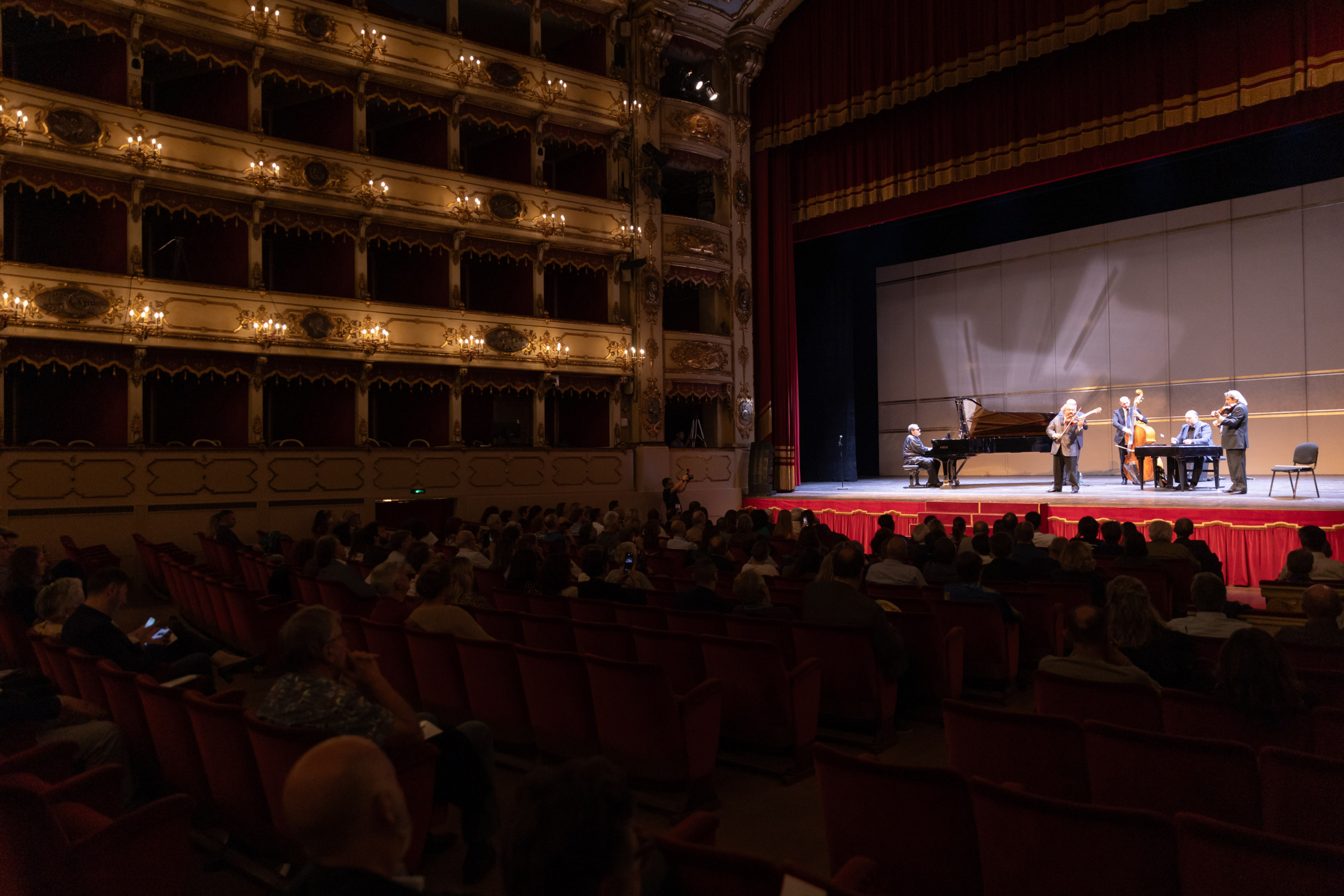
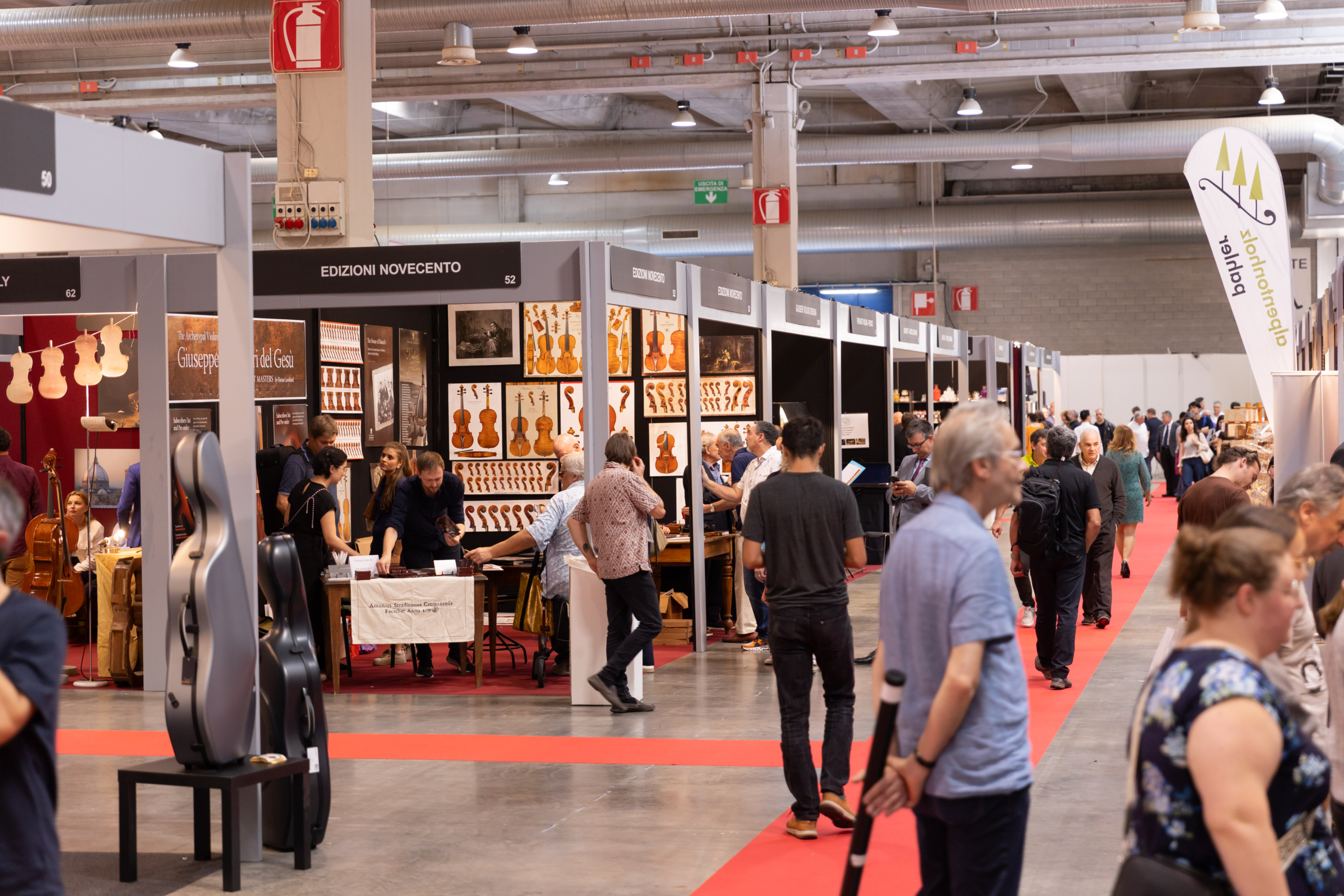
Constantine P. Carambelas-Sgourdas reports from Cremona
Cremona Musica takes place on an annual basis during the end of September and is considered to be one of the world’s largest and most important musical meeting points. Distinguished instrument makers, publishers, musicians, music critics, researchers and other professionals dealing with music visit the beautiful Italian city in northern Italy, birthplace of Claudio Monteverdi, Nicola Amati, Andrea Guarneri and Antonio Stradivari, in order to take part.
This year, Cremona Musica took place from Friday 27 to Sunday 29 September. The many thousands of professionals and music lovers who visited the main exhibition, also had the opportunity to attend a large number of events and concerts by established or upcoming artists performing different kinds of music mainly classical, but also jazz, pop and traditional. The variety and quality of the concerts were impressive.
Furthermore, one had the opportunity to attend a number of roundtable discussions, lectures and presentations of new publications, books or recordings.
Renowned Italian pianist Roberto Prosseda who is artistic director of Cremona Musica, and his wonderful team, had succeeded for yet another year to offer high quality events.

On Friday 27 September, 9 p.m., at the Teatro Ponchielli, one of Italy’s most imposing opera houses, the famed Hungarian violinist Roby Lakatos and his ensemble, as well as their special guest, violinist Michael Guttman, played with abundant enthusiasm and excitement works from Lakatos’ repertoire, much of which has been recorded in the past.
Earlier in the afternoon of the same day, 2.30 p.m., at the Exhibition Centre (Sala Monteverdi), pianists Jed Distler and Martina Frezzotti offered a sparkling performance of a selection of pieces from Gioacchino Rossini’s opera The Barber of Seville in the unusual arrangement for piano duo four hands by Arnold Schoenberg, whose 150th birth anniversary is celebrated internationally this year.
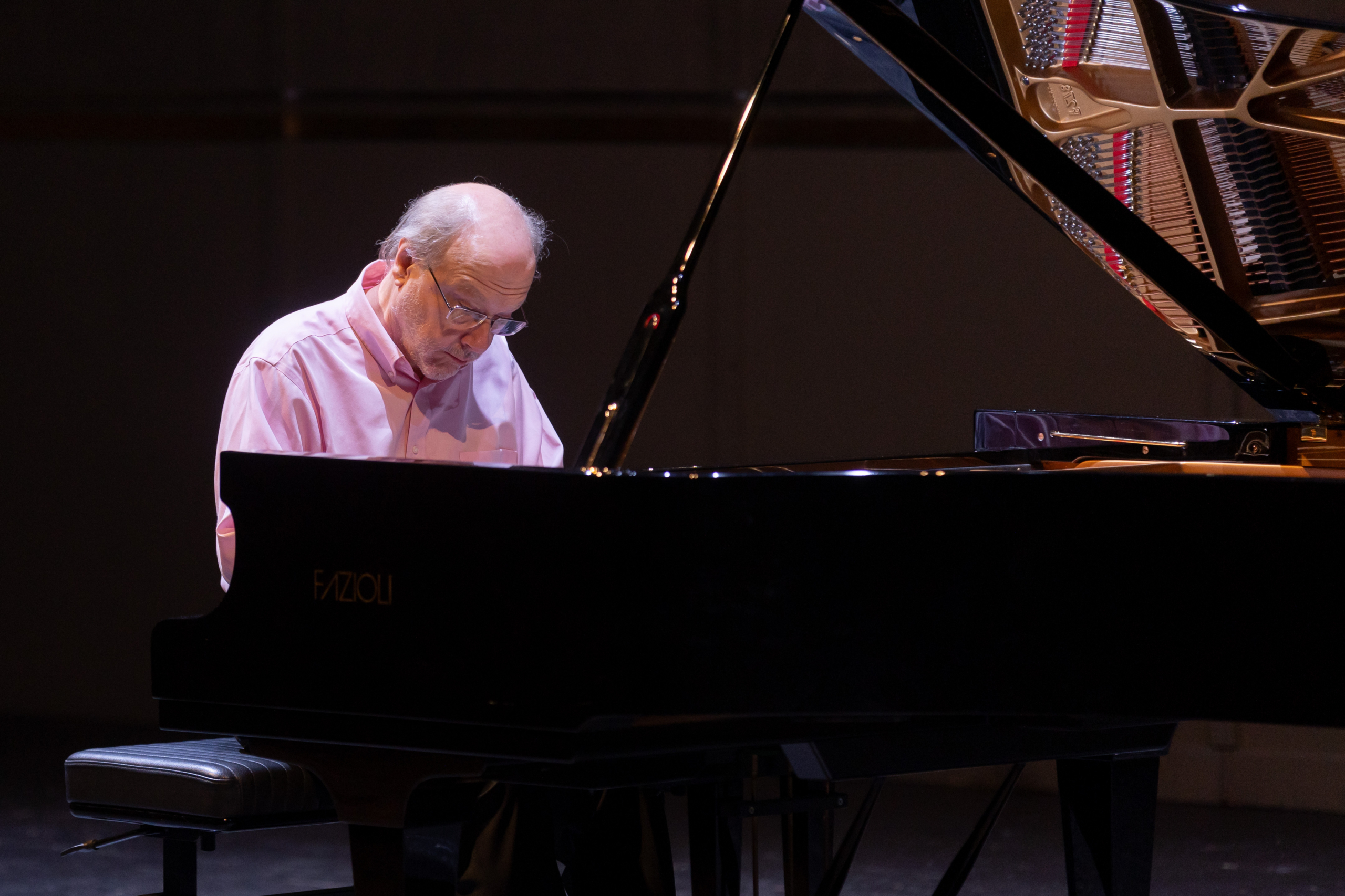
This year’s highlight, undeniably, was the recital given by much admired Canadian virtuoso pianist Marc-André Hamelin on Sunday 29 September, 6 p.m., at the Teatro Amilcare Ponchielli. It marked his first appearance in Cremona. His rare musical gifts, expressive range, exquisite taste and dazzling virtuosity were deeply appreciated during his readings of works by Joseph Haydn (Sonata, Hob. XVI:37), Ludwig van Beethoven (Sonata no. 3, Op. 2, no. 3), Nikolay Medtner (Improvisation Op. 31, no. 1, and Danza festiva, Op. 38, no. 3) and Sergei Rachmaninov (Étude-Tableau, Op. 39, no. 5, and Sonata no. 2, Op. 36, 1931 version).
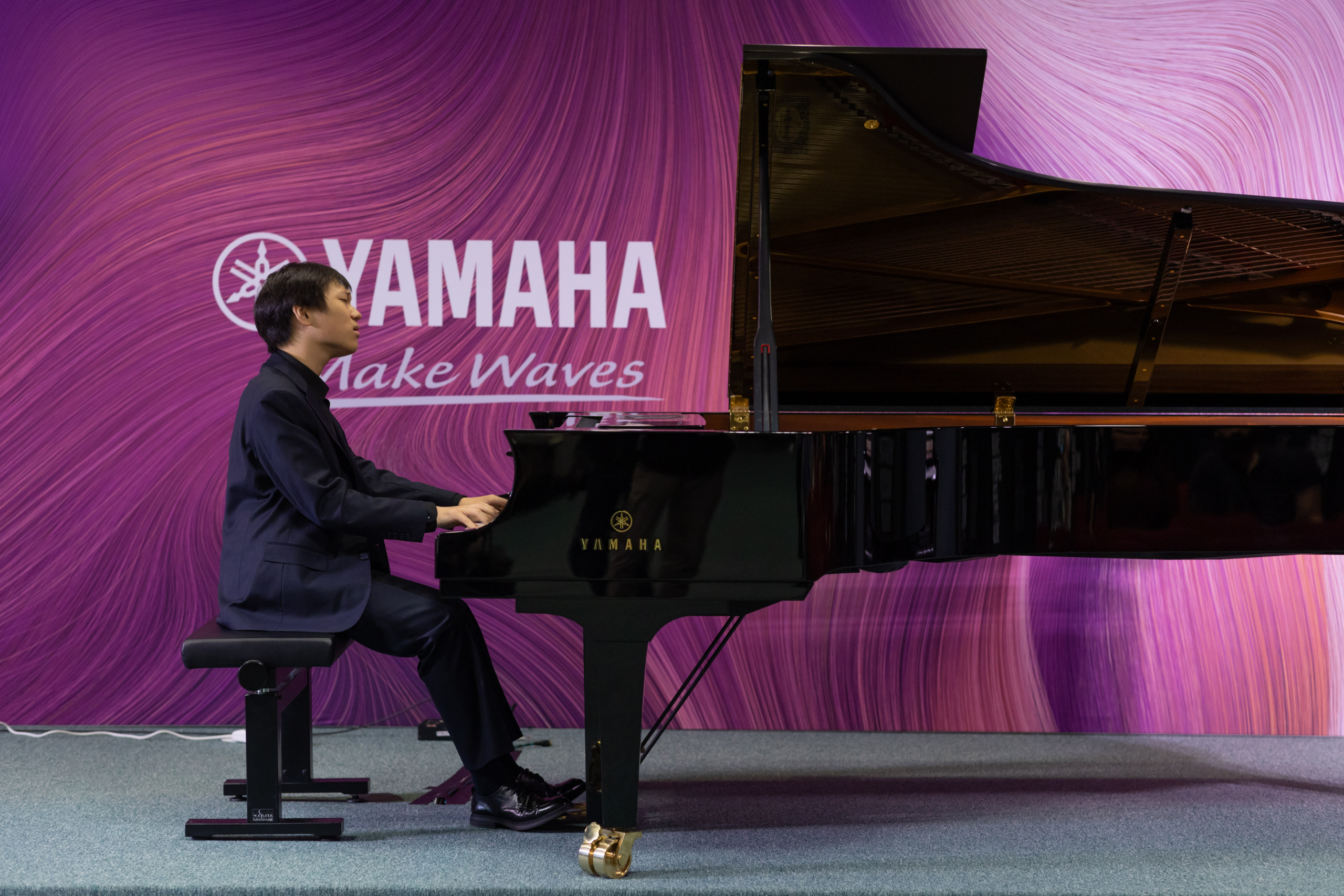
Among the many morning or afternoon recitals given at the Exhibition Centre by a number of rising stars, I was impressed by the one offered on 27 September, 4 p.m., at the Sala Stradivari, by fourteen-year-old American pianist and composer Taige Wang, a Young Steinway Artist and young scholar of the Lang Lang International Music Foundation, living in New York and studying at the Juilliard School with Yoheved Kaplinsky. Wang is indeed a greatly gifted artist, with a warm, beautiful and often delicate sound. He definitely knows how to express his feelings on his instrument and make the music speak in a direct and distinctive manner. He was absolutely persuasive and at home in all works that he performed: Ludwig van Beethoven (Piano Sonata no. 30, Op. 109), Franz Liszt (Transcendental Études, S.139, no. 4, Mazeppa, and no. 5, Feux follets), Béla Bartók (Two Romanian Dances, Op. 8a, nos 1 and 2) and Sergei Rachmaninoff (Études-Tableaux, Op. 39, nos 5, 6 and 9). Definitely a name to remember.
Among the roundtables and presentations, we should note the highly interesting roundtable discussion on the art of legendary pianist and composer Raoul Koczalski that took place on Sunday 29 September and was presented by Roberto Prosseda. The participants were Pietro Zappalà (What is a piano roll and the University of Pavia’s Piano Roll Collection), Peter Phillips (Digitizing rolls and midi files on Disklavier), Jean-Jacques Eigeldinger (Koczalski and the Chopin tradition), Aleksander Laskowski (Koczalski, Poland, and the Chopin Institute), Federico Foglizzo (Raoul Koczalski’s piano rolls), John Rink (Learning from Koczalski: A Comparison of Recordings). Following the roundtable, piano rolls expert Peter Philips delivered an enlightening lecture under the title Italian Musicians on Piano Roll.
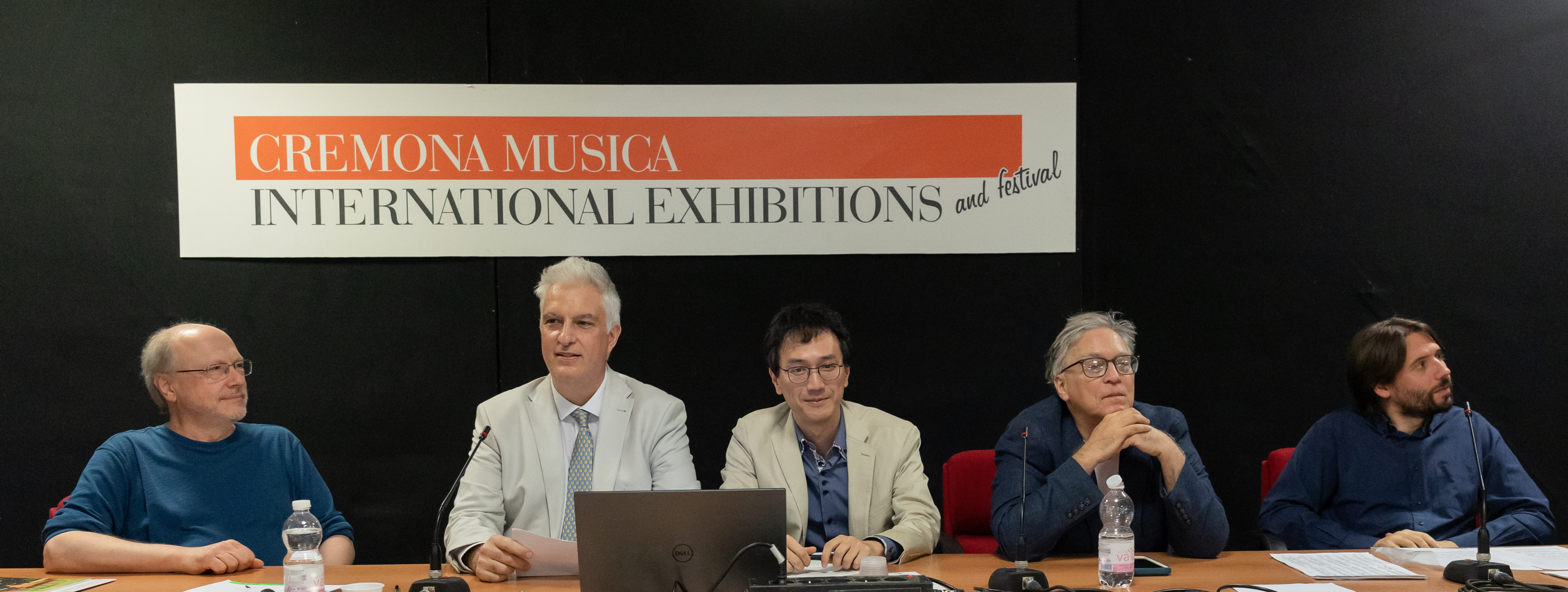
Later during the same day, a panel discussion took place at the Exhibition Centre (Media Lounge), concerning the French master composer and friend of Frédéric Chopin, Charles-Valentin Alkan. The title was Charles-Valentin Alkan: Roots, Influences and the Performance of his music in the 21st century and was presented and moderated by the author of the present article. The speakers were Marc-André Hamelin, Emanuele Delucchi, Jed Distler and Yasushi Ueda. Charles-Valentin Alkan (1813-1888) was one of the most outstanding piano virtuosos of his age and a genial composer. His personality was strong and imaginative. During his time he was considered a great artist and was compared with such masters as Frédéric Chopin and Franz Liszt. Alkan’s dearest piano professor and mentor at the Conservatoire de Paris was Pierre-Joseph-Guillaume Zimmerman (1785-1853). Zimmerman was the leading piano professor in Paris and a highly regarded composer. Ambroise Thomas, Charles Gounod, Georges Bizet and César Franck were among his famous pupils. He organised legendary concerts in his salon at Square d’Orleans inviting illustrious musicians to participate. Alkan considered Zimmerman a father figure, cherished him and remembered him throughout his life. During the panel discussion, Alkan’s roots, his life, the composers who influenced his thought and, of course, his relation to Zimmerman were examined. Furthermore, his place in the 21st century international music scene was also highlighted.
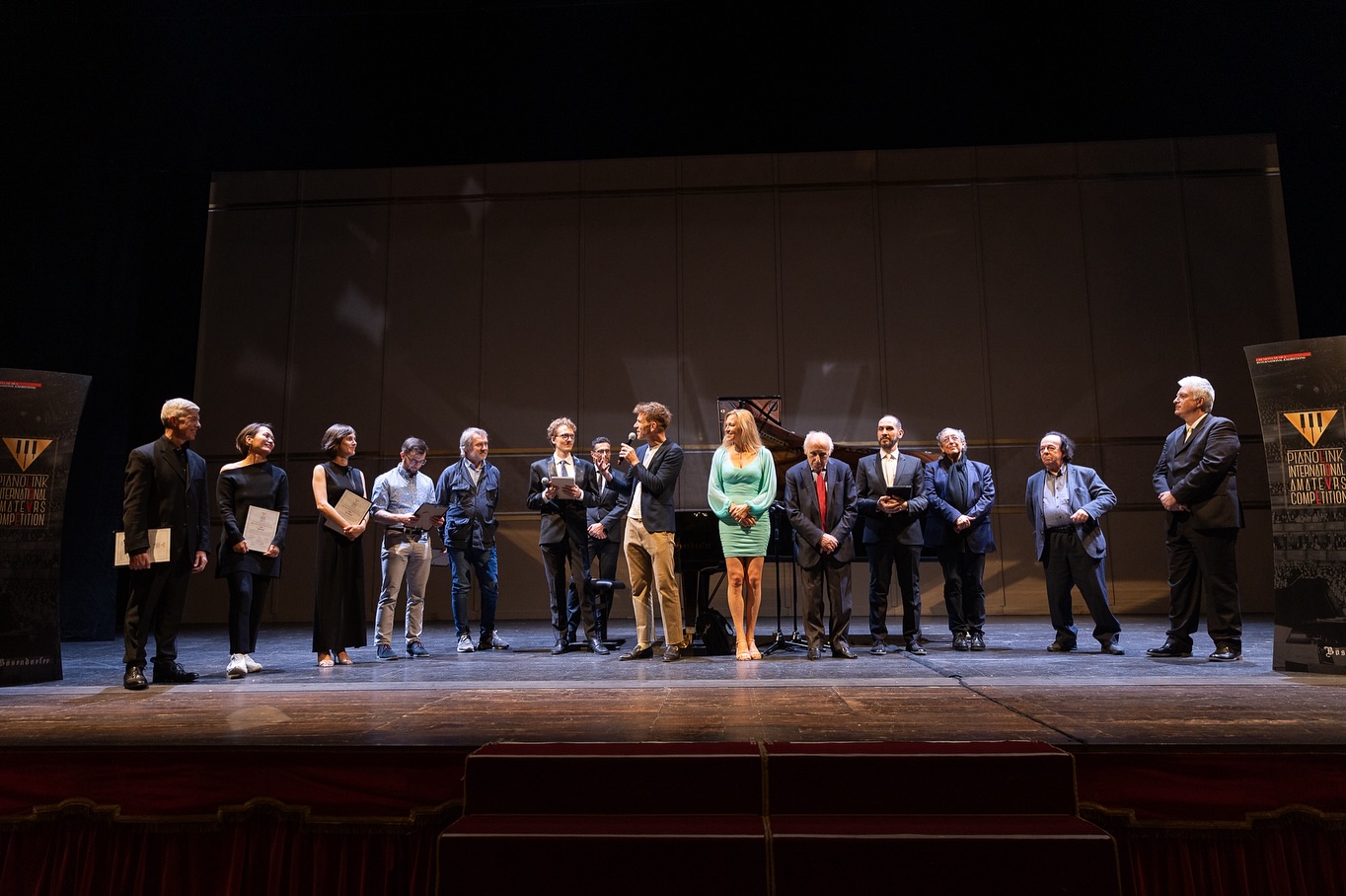
In addition, the 4th edition of the PianoLink International Amateurs Competition with the participation of a number of gifted amateur pianists, took place. During the final round, presented on Saturday 28 September, at the Teatro Amilcare Ponchielli, ten contestants from all over the world competed. All rounds were broadcasted in live-streaming on PianoLink, Cremona Musica, Cremona Fiere and Bösendorfer Italy and Europe’s Facebook and YouTube channels. Great winners were Charl De Wet (South Africa, grand prize winner, who competed in category A) and Tomoko Inoue (Japan, winner of the First Prize in Category A). Sara Tomasoni (Italy), Leonard Donadio (USA) and Marco Cima (Italy) also excelled. Artistic directors Andrea Vizzini and Roberto Prosseda had undoubtedly done a fine job in organizing a world-class competition. On a personal level, it was really inspiring and productive being on the jury with high-profile members such as Jean-Marc Luisada (President of the jury), Bruno Canino, Cyprien Katsaris, Svetlana Smolina and Andreas Kern.
In conclusion, we are very much looking forward to next year’s Cremona Musica which promises to be just as richly conceived and exciting!
Constantine P. Carambelas-Sgourdas is a music critic and a professor of advanced harmony, counterpoint, fugue, composition and piano. He is President of the C.V. Alkan-P.J.G. Zimmerman International Music Association, President of the Gina Bachauer International Music Association and President of the Association of Greek Critics for Music, Drama and Dance.

